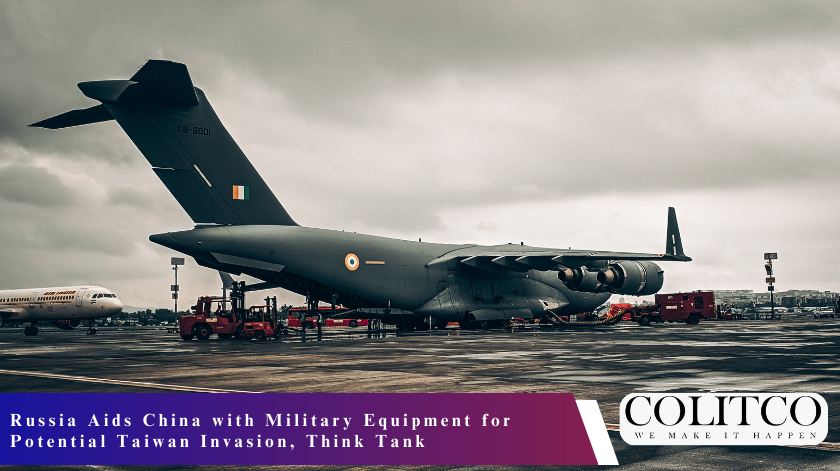Leaked Files Suggest Growing Cooperation
Documents leaked by a defence institute based in London indicate that Russia is assisting China in weapons and training in case of a potential operation against Taiwan. According to the results, released by the Royal United Services Institute (RUSI), it was a far-reaching collaboration on sophisticated equipment in the military, aerial strategies, and technical training.

Taiwan remains at the center of rising geopolitical tensions between China and Russia’s growing defense cooperation.
Analysis connects the provision of arms by Russia to China directly with the work of Beijing to enhance its capabilities. Although the documents do not specifically refer to Taiwan, analysts feel that the information was part of larger plans to engage in a possible China-Taiwan invasion in 2025.
Firearms, which are listed in the Documents.
The leaked documents, which include over 800 pages, contain specific information about weapons and vehicles that were going to be transferred. These are BMD-4M amphibious assault vehicles, Sprut-SDM1 anti-tank guns, and the armoured carriers BTR-MDM. The command and control vehicles, which are to be deployed in the air, are also mentioned in the documents.
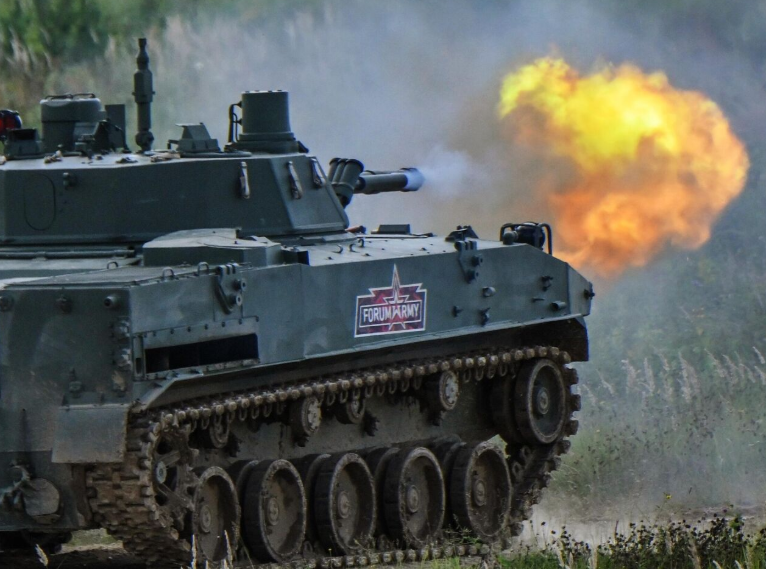
Russia has also agreed to supply high-altitude parachute equipment along with armoured equipment. These can also deliver heavy payloads over short ranges, enhancing the possibility of aerial troop insertion. The files indicate that the equipment will be modified for Chinese communications and ammunition.
Airborne Operation Training.
In addition to the weapons, training, and doctrine, support has also been stressed in the documents. Russian experts are also said to be teaching Chinese airborne troops in both Russia and China. Training also includes infiltration methods, how to coordinate the command, and how to include the vehicles in the airborne battalions.
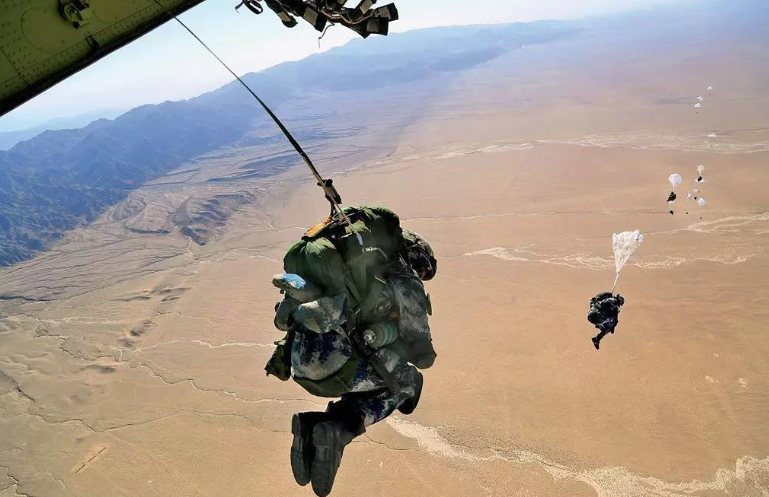
The support is to offer operational preparedness in the two years to come. According to analysts, the intelligence of the United States was earlier signaling that the year 2027 may be the time when China may move decisively to an attack on Taiwan. The schedule proposed by these files falls within that estimate.
Why Taiwan is Central
Despite Taiwan not being explicitly named, the type of equipment and training used is consistent with that of a cross-strait operation. The Amphibious and airborne forces form the core of military planning in China; however, the airborne capability has not been particularly powerful in the past.
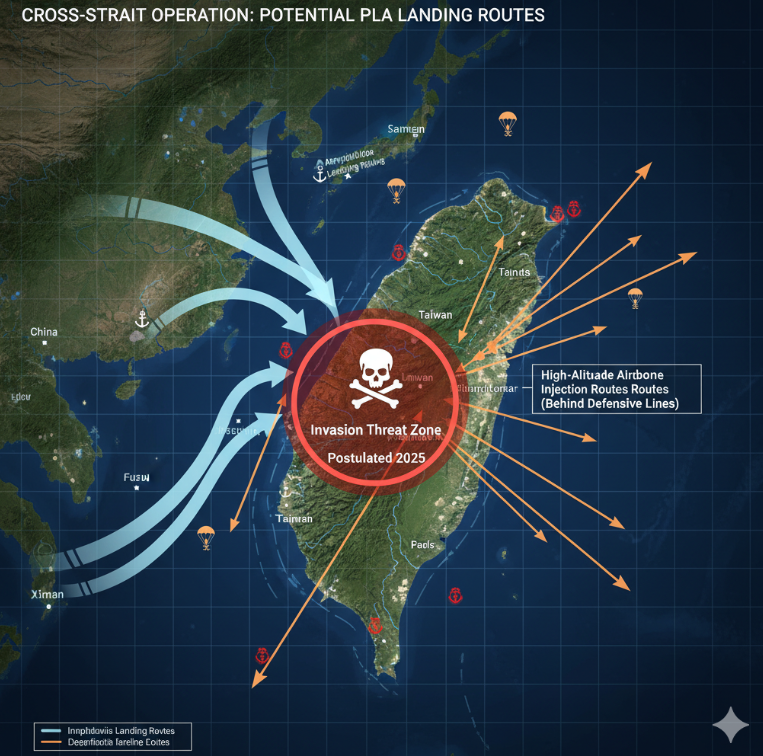
Analysts link the weapons and training to cross-strait operations that could bypass Taiwan’s defensive lines.
China can add another dimension to its strategy by enhancing its ability to make high-altitude injections. This would present a challenge to the armed forces of Taiwan because it would be possible to leave vehicles and troops behind Taiwan’s defensive lines. This is the reason why analysts read the findings as being an indication of how China is preparing to launch an invasion in 2025.
Beijing and Moscow official silence.
No one, not Beijing or Moscow, has verified the authenticity of these leaked documents. They have not, however, made a categorical denial. The two governments still emphasize the close relationship between themselves, and leaders reiterate the partnership in the economic and military sectors.
The assistance of Russia can be seen within a broader trend because Moscow is interested in export opportunities in conditions of sanctions imposed on its actions in Ukraine. To China, the availability of Russian expertise and resources hastens its long-term bid to modernise the People’s Liberation Army.
International Reactions
Washington and allies have been interested in the revelations. United States officials have been worried that closer Russia-China military collaboration in 2025 may make matters harder in the region. Even Taiwan might have to change its defensive position in response to new air threats.
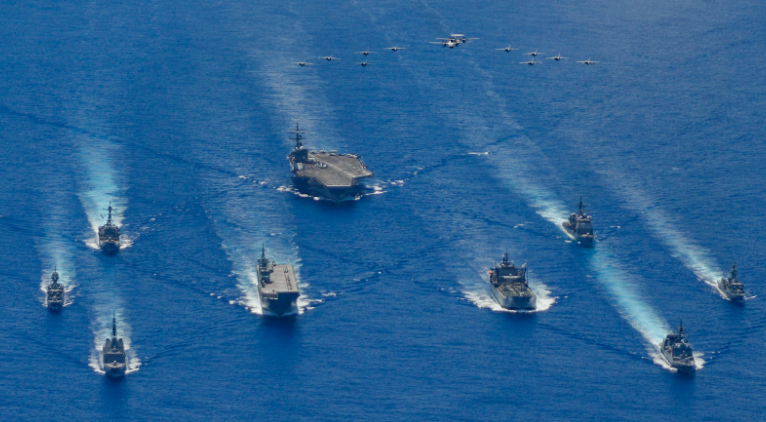
The regional allies like Japan and Australia are also very keen on the developments. Any improvement of Chinese capabilities, according to analysts, would have its effect on the balance of power in the Indo-Pacific. The arms shipments of Russia to China are therefore closely monitored.
Broader Military Context
The modernisation program on defence in China has already changed the naval and missile forces. This would increase its choices in case of any cross-strait conflict, since it would have added advanced airborne forces. The role of Russia not only offers equipment, but also operational expertise with decades of experience in the air.
To Moscow, the alliance guarantees increased relations with Beijing and enhanced strategic orientation due to pressure in the West. In the case of Beijing, it increases the speed of preparation in an area where the PLA has been weak.
Also Read: Prime Minister Albanese Delivers Key Message in Europe: ‘Nostalgia Is Not a Strategy’
Final Thoughts
The revelation of the London think tank about Russia supplying China with military equipment has become the center of debate on whether Russia is contributing to the stability in the region. The classified documents reveal the shipment of arms, training, and parachute gear, custom-made for Chinese troops. Taiwan is not explicitly mentioned, but the contents are very much in line with the provisions of a cross-strait conflict.

